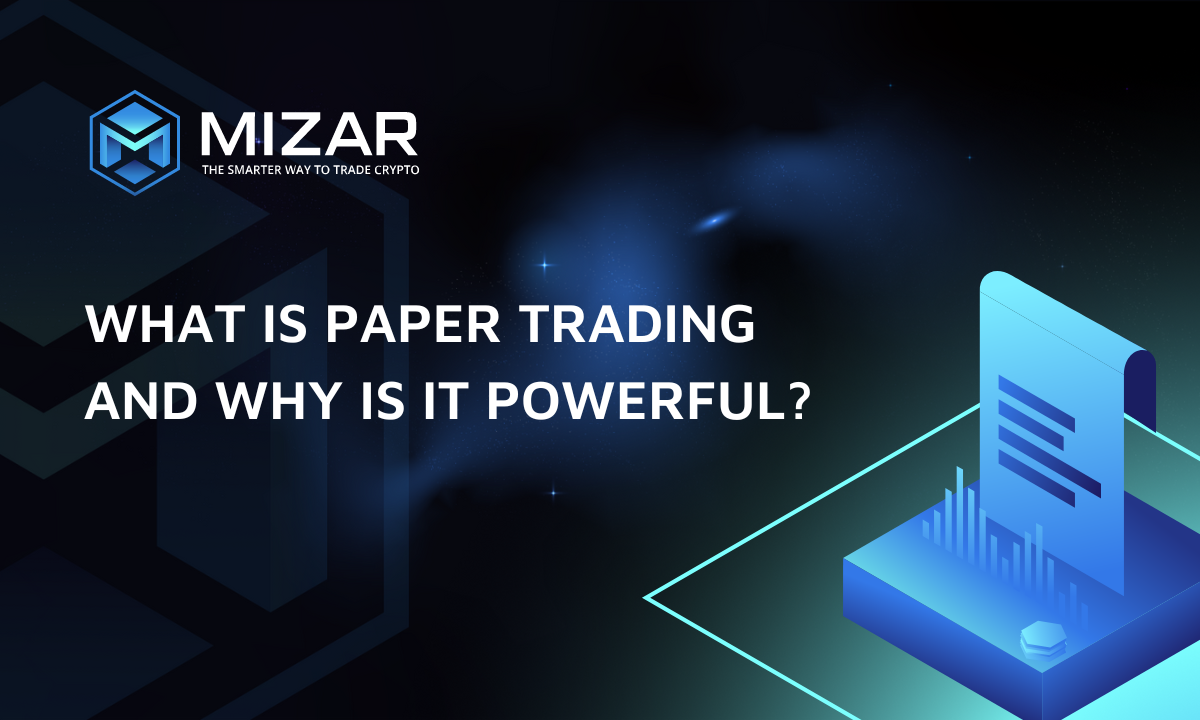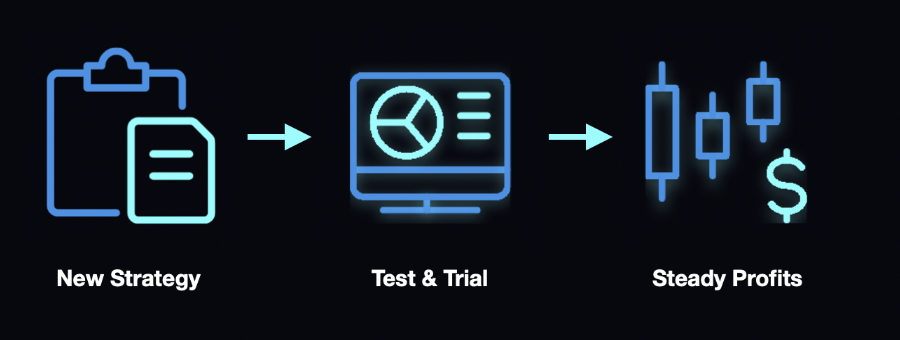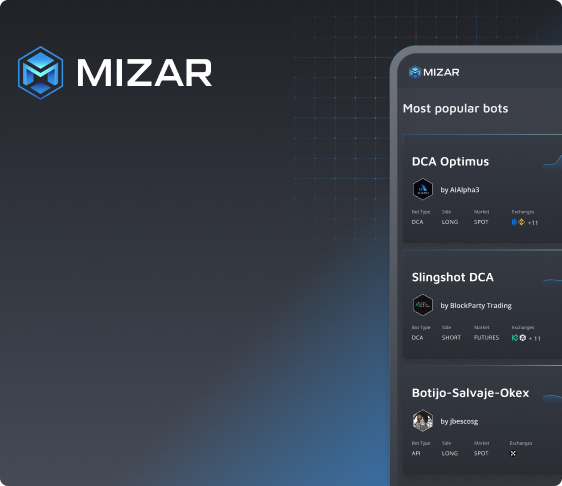What Is Paper Trading And Why Is It Powerful?

Looking for a safe way to trade crypto? Crypto paper trading might be a tool for you. This article elaborates on the paper trading concept, explaining what paper trading is and how you can benefit from using it.
Key Takeaways
Paper trading is a simulated trade to allow the safe practice of buying and selling assets, like stock options, bonds or crypto. Get the real experience, in real-time crypto markets, without the risk of “real” losses.
Trading on paper helps you to test new strategies before using them in a real account.
Paper trading teaches beginners how to navigate the platforms and make trades but may not reflect the true emotions of real market conditions
Not all paper trading accounts are equally efficient
What is Paper Trading?
Imagine playing a flight simulator game where you can fly a plane from within the cockpit. You probably don't think about crashing much. It's your haven to try and test things out safely. You can eventually get off to a flying start even if your skills are doozy at first. By analogy, a paper trading account is a simulator that allows beginners to try their hand at trading — all to become better in a safe environment and go out there to experience trading to the fullest.
You can use it to conduct practically any financial transaction in real-time — sell and buy spot, options, and futures. The point is you do not have to invest a single dollar of your own money. Instead, trading is done with virtual money. Just like you may get in a video game: the funds can’t be withdrawn or cashed out.
Learn more about paper trading on TradingView on the [TradingView Paper Trading] guide
Why Paper Trading for crypto?
Newbies can gain experience without risking their own money, while professionals can track data across strategies to pick the best ones.

Even if you spend several years learning the ropes of trading, you may still get completely confused when participating in real trading. A crypto paper trading platform helps you get used to trading on a specific exchange and lowers the entry barrier to zero, as you don't need any deposit to experience trading.
Experienced traders use paper trading to test new strategies, refine existing ones, and measure potential yields for both. A paper trading account is an excellent opportunity to take all the nuances of a specific platform, software provider, or broker into account. As a crypto paper trading account is an exact copy of a real one, you'll understand the fee structure and features from within. It's an important point many newbies neglect, effectively lowering their profits over the long haul.
How convenient is the chosen trading terminal? How does technical support work? Do the features fit your trading style, or perhaps, the provider doesn't have some features at all? Paper trading might help answer those questions straight away. Indeed, a real account may slightly differ, but you still get the gist.
Paper Trading: Pros and Cons
Let’s dive into the pros and cons associated with paper trading to understand whether it’s worth your attention.
Paper Trading Pros
Test trading strategies safely
Understand the specific steps of trading
Learn about the software provider, features, and services
Study the principles of capital management and market functioning
Tame your emotions and nail behavioral patterns related to trading
Paper Trading Cons
Some platforms offer paper trading but they simulate markets badly
May build up lenient trading attitude if paper trading for too long
Confusing emotions may push you toward excessive risks in the future
Paper Trading vs Live trading
Paper trading differs from real/live trading in technical and psychological aspects. While tech application wedges in the form of specific and measurable market conditions like trading delays and spreads, psychology is doing more subtle background work affecting the trader.
Let’s break down the key difference to understand what you can expect from paper trading accounts and whether they may level up your trading.
Technical Difference
Not all paper trading accounts are equally effective in real-market simulations: some may imitate underlying conditions inaccurately. Moreover, demo accounts rarely consider delays occasionally happening during real trading. Market participants may encounter time delays when executing orders. That means the position is not opened immediately, as it takes some time to process the order. Although it’s a fraction of a second, it may be enough to ruin your profits. Mizar paper trading is one of the best simulations out there, as it considers multiple factors to make a virtual trading simulation as accurate as possible.
Psychological Difference
Trading virtual money cultivates no fear of loss. Therefore, emotions do not interfere with the trader’s behavior. Sometimes a trader may break bad, using strategies that don’t match his risk/reward profile. If you open a real account, the emotional factor may become one of the most important pillars in decision-making. To avoid poor emotional consequences, you might want to control your crypto trading and use paper trading for educational and testing purposes.
Then the newcomer's attitude to trading as a game can lead to serious problems.
When You Should Switch to Real Trading
Even though you can’t calculate the exact amount of time, you may take a guess that it’s high time to trade for real, by relying on the following factors
You have picked and tested several trading strategies
You have experienced a platform's features and trading conditions, so you understand how things work
You understand the optimal transaction volume based on your available deposit
Your profitable trades exceed the losing ones. Anything above the 60/40 ratio is a good sign to move on
You don't trade based on cravings or emotions but stick to your trading strategy
Closing Thoughts
A crypto virtual account is a good tool for both beginners and experienced traders. It allows you to get used to the exchange, try the investing strategy, check the fees, and get acquainted with a new software provider. Yet, you might want to steer clear of using paper trading for too long.
